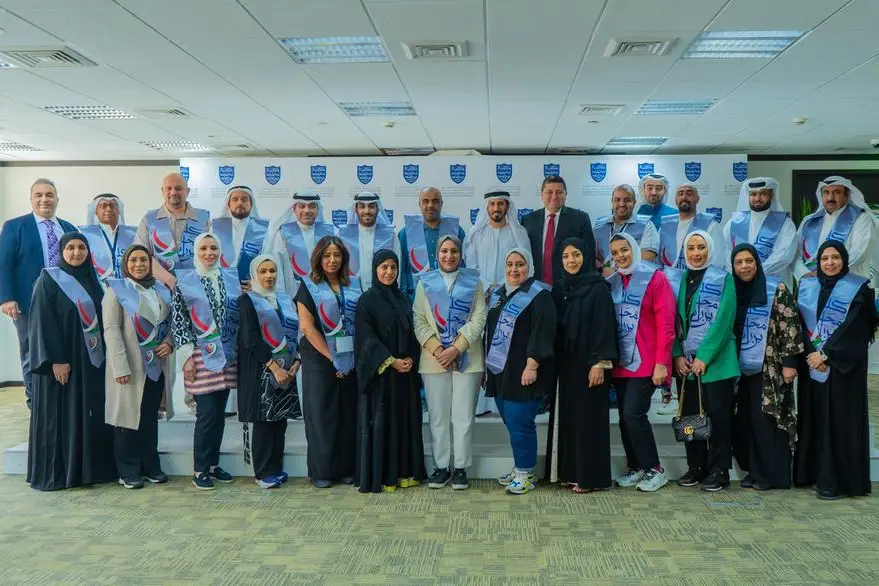PHOTO
Dubai, UAE – The Mohammed Bin Rashid School of Government (MBRSG) has concluded the second round of the Leadership and Government Excellence Programme, graduating a second batch of leaders (namely supervisors and managers) from the Ministry of Finance in the Kuwaiti government.
The second round of the programme comes as an affirmation of MBRSG’s commitment to providing government leaders in the region and the world with insight into the latest experiences and practical expertise in the government sector, in addition to equipping leaders with the necessary skills to implement government plans in accordance with their set objectives.
The programme was held over five days and focused on five main themes: Government and Government Directions of the Future; Strategies and Future Forecasting; Transformations, Imperatives, and Technologies Affecting the Future; Managing Change in a Turbulent Era; and Modern Government Administration Trends.
His Excellency Dr. Ali bin Sebaa Al Marri, Executive President of MBRSG, said: “The Mohammed Bin Rashid School of Government is committed to communicating our expertise and experiences to the local government of each emirate, as well as around the region and the world. We strive to train their leaders in line with the latest global visions to be more agile and remain on top of global developments. We are pleased to graduate a new batch from the Ministry of Finance in Kuwait, and we will work closely to strengthen collaboration with our various partners in the region, in order to promote the UAE’s pioneering government experience and spearhead a significant leap forward in government performance.”
MBRSG strives to implement the most advanced methods to enhance employees’ skills in government administration. The Leadership and Government Excellence Programme is designed according to the latest educational standards, combining academic research and executive education. Sessions are presented by a group of MBRSG professors and experts.
The first theme of the programme, Government and Government Directions of the Future, explores future directions in the government sector, highlighting the UAE’s directions in government administration, and outlining how the UAE government was able to adapt to global trends, in addition to identifying the foundations and principles of an agile government. With the second theme – Strategies and Future Forecasting – the programme presented the concepts of corporate strategies and future forecasting, underlining future directions along with their benefits and challenges. A set of future forecasting methods and tools were also studied.
Meanwhile, the third theme – Transformations, Imperatives, and Technologies Affecting the Future – discussed what it called the era of inevitability and positive thinking about the future, in addition to exploring artificial intelligence, augmented and virtual reality technologies, new energy technologies, blockchain, virtual currencies, the virtual world and its impact on government activities, soft power and how countries can use it to develop their economy for the future and deepen their global impact.
The fourth theme, titled Managing Change in a Turbulent Era, covered a number of topics, most notably, the need for change in institutions, how leaders can shift to a new way of thinking and working, trends in an era of uncertainty and change management, and the speed and adaptability of leadership to keep up with the pace of change. The fifth and final theme – Modern Government Administration Trends – looked back on the journey of institutional excellence and the results it has achieved, as well as on the system of institutional excellence, the leadership’s role in promoting government excellence, recent trends in shaping the future, and innovation and proactivity in services.
-Ends-


















